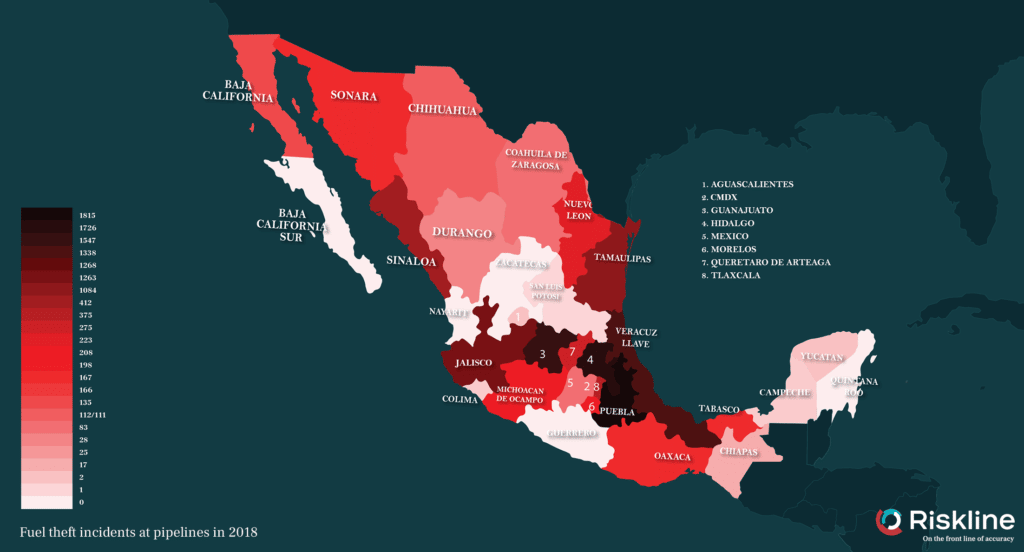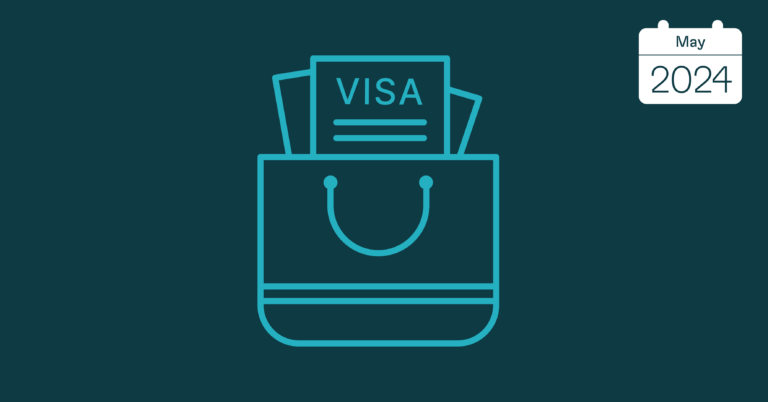This year began with long queues at fuel service stations across Mexico. The deficit of fuel in Aguascalientes, Coahuila, Guanajuato, Hidalgo, Jalisco, León, Mexico City, Mexico, Michoacán, Nuevo León, Oaxaca, Puebla, Tamaulipas and Querétaro states is due to the implementation of a new strategy by the federal government to fight the illegal theft and resale of gasoline and diesel, locally known as ‘huachicoleo’, which has emerged as one of the most profitable forms of organised crime over the past decade.
Incidents of fuel theft were reported in 26 states in 2018, up from nine in 2013, with an estimated loss of 66 billion pesos (3.41 billion USD) last year alone. The number of illegal taps from Petróleos Mexicanos (Pemex) pipelines has grown exponentially during the last decade from nearly 700 to 11,000 in 2018, despite an improved monitoring system at Pemex. In some areas, illegal fuel provides around 30-40 percent of the total supply. According to Mexico’s recently elected President Andrés Manuel Lopéz Obrador (AMLO), this growth is due to institutional corruption at Pemex. AMLO’s plan to fight the huachicoleo includes collaboration between government institutions and the deployment of 4,000 military troops to 58 Pemex installations across the country. The federal government has closed some of the main fuel pipelines, including the Salamanca-El Salto and Tuxpan-Azcapotzalco lines in central Mexico, and opted to use tankers for fuel transportation until security is sufficiently increased along the pipelines. According to authorities, dozens of illegal taps have already been closed, while hundreds of thousands of litres of fuel have been secured and dozens of people, including Pemex officials, investigated for alleged involvement in fuel theft since 27 December 2018. Initial investigations indicate that there has been a parallel Pemex distribution and sales network in existence for years involving officials at every level of government and Pemex employees.
The fight against the huachicoleo is also seen as a key contributing factor in reducing high levels of violence in Mexico. Rising crime rates in states such as Guanajuato and Puebla are evidenced by frequent deadly clashes between groups of fuel thieves, know as ‘huachicoleros’, and the military. Residents in the Red Triangle area of Puebla have created community guards for self-protection against groups linked with the Bukanas cell of the Zetas and Jalisco New Generation drug cartels as they fight over the illicit fuel market.
The change in fuel distribution logistics has brought unforeseen consequences in over a dozen states, however, as fuel tankers are only able to move a portion of the gasoline and diesel that was previously transported via pipelines. Demand has increased: in the absence of an offer of illegal fuel, consumers are returning to authorised fuel service stations, some of which also used to buy the illicit fuel for resale. In Mexico state and Mexico City, angry motorists have set up roadblocks over delays in refueling. As an unintended benefit, however, the increased use of public transport due to fuel shortages has actually helped improve the poor air quality in the capital region. But in Guanajuato, Michoacán and Querétaro states, food prices have increased; in Jalisco, water distribution has been adversely affected in Guadalajara; and security operations have been partly paralysed in Zapopan due to a lack of fuel. In Morelia, public transport and taxi services have also been severely affected, while acts of violence have been reported against fuel service station employees in Michoacán and Quéretaro states amid growing economic losses. On 18 January, at least 89 people were killed and 51 others injured in Tlahuelilpan, Hidalgo, in the biggest tragedy for fuel theft in Mexico’s history, as the Tula-Tuxpan pipeline exploded when hundreds of people were gathering fuel from the ruptured pipeline a few kilometers from a major refinery.
Political opponents of AMLO have criticised him for what they claim is an abrupt, ill-planned, poorly communicated and expensive logistical change of fuel distribution. While the government is likely to pass legislation that will make pipeline theft and buying of stolen fuel a serious crime, the country also needs more fuel storage facilities, improved monitoring and security to guarantee fuel supply in the future. Despite a recent decrease in fuel theft rates, services and transport are likely to continue to be affected by the fuel shortages at service stations across the country until increased security measures are implemented on a wider scale and distribution normalises. The coming months will also show if AMLO’s strategy succeeds in reducing the high rates of associated crime and violence in affected areas.















